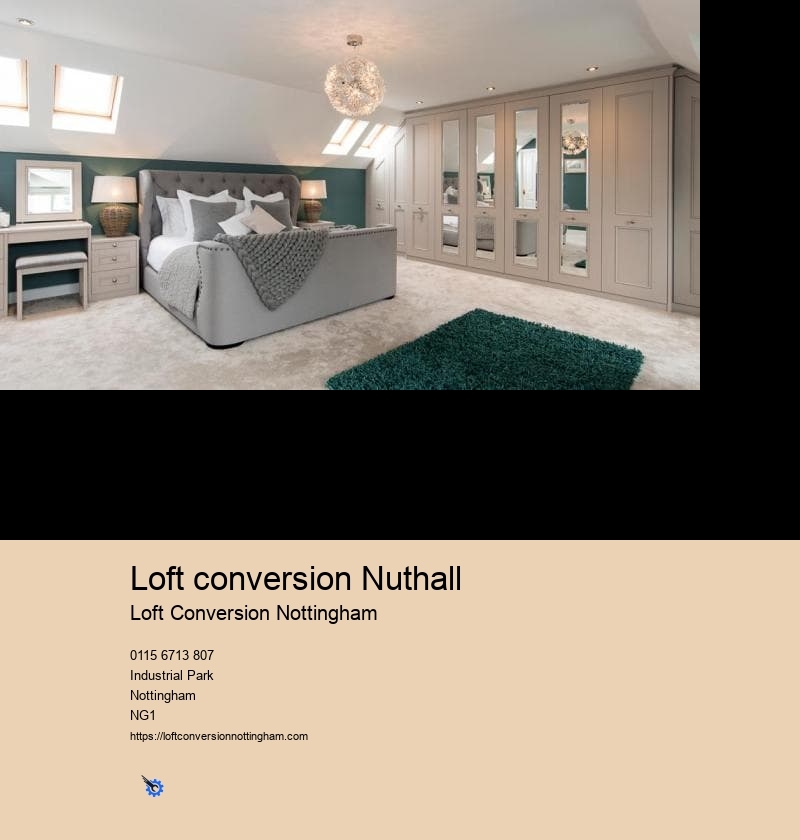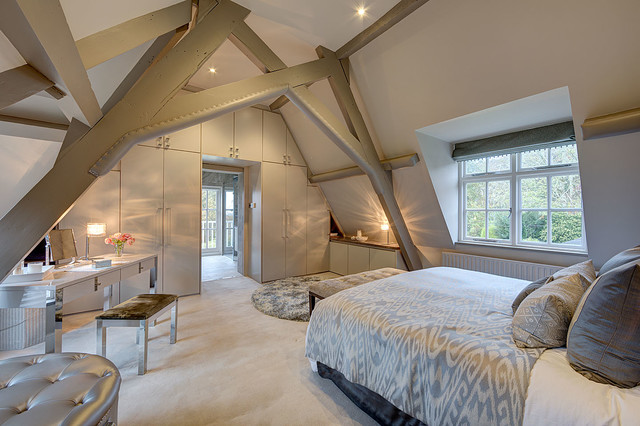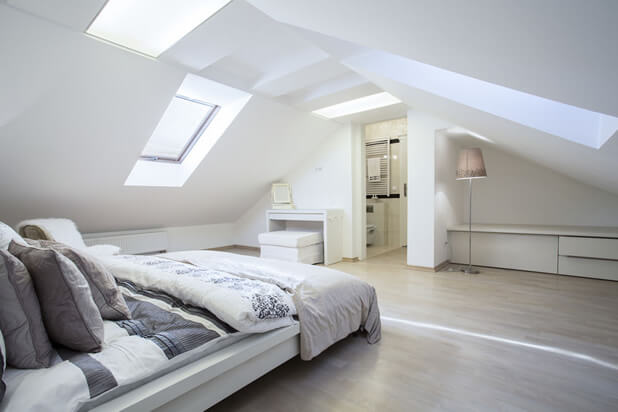Loft conversion Nuthall
Loft Conversion Nottingham
Extensions provide a great way to add additional living space to your home, but they are more expensive than loft conversions. Extensions require planning permission and you will also need to factor in the cost of new foundations and structural work.
Before you decide to have a loft conversion, it’s important to do your research. Make sure you get quotes from several different companies, and read reviews to make sure you’re getting the best service possible. You should also speak to your local council to find out what planning permission is required for a loft conversion in Nottingham.
Another factor to consider is the size of your loft. If you have a large loft space, you’ll have more room to work with, and you’ll be able to make the most of the conversion without losing too much space. On the other hand, if you have a small loft, you may have to sacrifice some of the space in order to fit in a loft conversion.
The answer to this question depends on a number of factors, including the size and complexity of the project, the time it takes to obtain planning permission, and the availability of materials and labourers. Generally, a loft conversion can take anywhere from 6 to 12 weeks to complete, depending on the complexity of the project.
Overall, converting your loft can be an excellent way to add value to your property. By considering the type of house you have, the type of conversion you need, and the associated costs, you can ensure that you get the most value out of the project.

Loft Conversion Nottingham
No matter which type of loft conversion you choose, it is important to understand that you will not lose any space from inside your home. The additional living space created from the conversion is created from the roof, which was likely unused before the conversion began. Therefore, loft conversions are a great way to add extra living space to your home without losing any space inside.
Finally, the last most expensive part of a loft conversion in Nottingham is likely to be the cost of any additional electrical and plumbing work that may be required. Electrical and plumbing work is important for any loft conversion as it helps to ensure the safety of the occupants. The cost of any additional electrical and plumbing work is based on the complexity and scope of the work needed.
Ultimately, whether you choose a loft conversion or an extension largely depends on your individual needs and budget. If you need additional living space and have the budget for it, an extension may be the best option. However, if you are looking for a more cost-effective solution, a loft conversion may be the better choice for you.
Overall, the most expensive part of a loft conversion in Nottingham is likely to be the cost of the structural work. However, the cost of insulation, windows and doors, and any additional electrical and plumbing work can all add up to create a significantly more expensive project.
Finally, if you’re not looking to make any major structural changes to your house, you may want to consider a Velux loft conversion. This type of conversion involves adding Velux windows to the roof of your house to create extra living space. Velux conversions are cost-effective and can provide plenty of extra living space without requiring any major structural changes.
When it comes to deciding whether to invest in a loft conversion, one of the most commonly asked questions is ‘will converting my loft add value to my home?’ The answer is yes – but it’s not quite as simple as that.
One option is to install a floating staircase, which is a set of stairs that is installed against the wall and does not touch the floor. This type of staircase is ideal for smaller spaces or where there is limited space to install a staircase. It is also one of the most cost-effective options, as it requires minimal construction work.
Loft Conversion Nottingham
Relevance
| Loft conversion | Attic |
| Roof | Rafters |
| Dormer | Lofts |
| Floor | Gable |
| Planning Permission | Mansard |
| Windows | Door |
| Insulation | Velux |
| Staircase | Eaves |
| Bedroom | Building Regulations |
| Bathroom | Plumbing |
| Joists | Ventilation |
| Stair | Architect |
| Ceiling | DIY |
| Hipped-roof | Building Control |
| Stud Wall | Staircases |
| Roofing | Hips |
| Joists | Stairway |
| Natural Light | Frame Structure |
Wikipedia says this about Nottingham
Loft Conversion Dormer Nottingham
Loft Conversion Cost Nottingham
When considering the most expensive part of a loft conversion in Nottingham, it is important to factor in all of the costs associated with the project. From the roof to the labour costs, the total cost of a loft conversion can quickly add up. However, the result of a successful loft conversion can be well worth the expense.
Finally, you’ll need to make sure you have the correct planning permission. If the loft conversion is within permitted development rights, you won’t need to apply for planning permission. However, if your proposed works are outside of these, you’ll need to apply for planning permission from Nottingham City Council.
The first type of loft conversion is the rooflight conversion. This is the most common type of loft conversion, and involves removing the existing roof and replacing it with a new one. This is usually done with large steel beams and trusses, making it a relatively cost-effective option. The advantage of this type of conversion is that it is quick and easy to complete, and there is minimal disruption to the existing structure of your home. The disadvantage is that it is not as flexible as other types of conversions and can be more expensive.
Another important factor to consider is what type of loft conversion you want. Do you want to create a bedroom, an office, a storage area, or something else? The type of loft conversion you choose will depend on what you intend to use the extra space for. For example, if you want to create an extra bedroom, it is important to ensure that you will have adequate headroom and ventilation for the space to be comfortable and safe.
The cost of a roof for a loft conversion will vary depending on the size and shape of the loft and the type of material used. For example, a flat roof will be less expensive than a pitched roof, but it may not be as durable. Flat roofs are also more prone to leaking. On the other hand, a pitched roof will be more expensive and require more work, but it will also provide more headroom and be more durable.
In addition to the size and shape of the space, you’ll also need to consider the current structural integrity. The loft must be in good condition, with no signs of damage or wear and tear. If the loft is too old or has been damaged, then it may not be suitable for conversion.
If you’re looking for something a bit more substantial, a mansard conversion can be a great option. This type of conversion involves adding a full new level to the existing loft space, creating an additional floor with plenty of headroom and light. Mansard conversions are more expensive than other types of loft conversions but they can add significant value to your home.

Loft Conversion Dormer Nottingham
The first step to take when considering a loft conversion in Nottingham is to contact the local planning authority. They will be able to provide you with detailed information about the type of planning permission that may be required for your project. Additionally, they can provide information about any fees that may be associated with the conversion. It is important to note that some conversions may not require planning permission, however it is always best to check with the local authority before beginning any work.
Once you have chosen the type of conversion you want, the next step is to contact a professional loft conversion firm in Nottingham. A professional firm will be able to advise you on the best way to go about your conversion and will be able to provide you with a timeline for completion. Generally speaking, the firm will begin by assessing the area to be converted, and then will draw up plans and carry out any necessary structural work. This usually takes around two weeks.
The second type of loft conversion is the dormer conversion. This involves building a new structure onto the existing roof, which is typically made from timber or metal. This type of conversion is more expensive than a rooflight conversion, but it is more flexible in terms of design and allows for greater headroom. The disadvantage of this type of conversion is that it can be quite disruptive to the existing structure of the home.
In conclusion, it is important to research the various regulations and restrictions that may apply when considering a loft conversion in Nottingham. This includes determining whether or not planning permission or building regulation approval is required, as well as any other restrictions that may apply to the project. The cost of obtaining these permissions and approvals will vary depending on the size and scope of the project, so it is important to factor this into your budget.
Another option is to build the stairs in the corner of a room on the ground floor. This provides more space for the stairs to fit in and can be a more attractive option. However, it may not be suitable for all types of loft conversions.
In terms of cost, loft conversions are typically cheaper than an extension. This is because the conversion works with the existing structure of the house, so there is no need to build additional walls or foundations. Additionally, converting your loft requires less labour and materials than an extension.
Loft Conversion Stairs Nottingham
Finally, the firm will move on to the exterior work, such as the installation of windows, doors, and other finishing touches. This part of the process can take up to two weeks, depending on the complexity of the job.
The cost of converting a loft to a dormer will vary depending on the size and complexity of the project. Generally, the cost of a loft conversion to a dormer will range from around £10,000 to £30,000. This includes the cost of the materials, labour, and any other associated costs. The cost can be even higher if the project involves more complex construction work, such as structural changes.
Another popular option is a rooflight conversion, which involves adding skylights and windows to the existing roof structure to create a bright, airy space. This type of conversion is ideal for lofts with limited head height and can be completed quickly and without too much disruption.

Loft Conversion Ideas Nottingham
In conclusion, the cheapest way to do a loft conversion in Nottingham will depend on the size and complexity of the project, the materials and labour costs, and any permits or permissions needed. By researching all of these factors, you will be able to get the best value for money and ensure that your loft conversion project is completed to the highest standards.
Finally, it’s worth exploring DIY options. If you’re willing to do some of the work yourself, you could save a lot of money. However, it’s important to be realistic about your DIY skills and to consider the amount of time it will take to complete the project. DIY can be a great way to save money, but you’ll need to be confident that you can complete the job.
Overall, it’s difficult to say exactly how much space you’ll lose with a loft conversion, since it depends on a variety of factors. However, with careful planning and an experienced contractor, you can make the most of the space available and ensure that your conversion is a success.
When it comes to deciding whether to convert your loft into a bedroom, there are a few things to consider. Firstly, will you need to add insulation to the loft in order to make it a habitable space? Secondly, does the loft have the necessary headroom to accommodate a bed and other furniture? Thirdly, what kind of modifications will you need to make in order to make the space comfortable?
When considering a loft conversion in Nottingham, one of the most important considerations is where the stairs will go. This is because the stairs are a key feature of any loft conversion, providing access to the new living space.
Loft conversions are an increasingly popular way to add extra living space to your home, but there is a common misconception that they take up a lot of space. It is true that a loft conversion can take up some space in your home, but it is important to understand that this depends on the type of loft conversion you choose. In Nottingham, the most popular type of loft conversion is the dormer loft conversion, which is very space-efficient.
A loft conversion can add significant value to your home, depending on the level of work that is carried out. A well-planned, high-quality loft conversion can add up to 20% to the value of your home, which is considerable. However, this isn’t a guarantee – a poorly-planned or low-quality conversion could actually reduce the value of your home.
Overall, a loft conversion typically takes between 6 to 12 weeks to complete, depending on the complexity of the project and the time it takes to obtain planning permission. If you’re looking to convert your loft in Nottingham, it’s important to understand the time frame involved and be prepared to invest the necessary time and money to ensure a successful project.
Loft conversion NuthallLoft Conversion Company Nottingham
If you do have a suitable loft, the next step is to consider how much it will cost to have it converted. This will depend on the size of the loft, the level of work required and the materials you choose. In Nottingham, the average cost of having a loft converted is around £20,000 - £25,000. This cost could be higher or lower depending on the specifics of the project.
If you’re looking to have a more luxurious loft conversion, then the cost can be much higher. This could include features such as an en-suite bathroom, velux windows, or even a staircase. The cost of a high-end loft conversion in Nottingham can range from £25,000 to £50,000.
In conclusion, a loft conversion can add significant value to your home – but it’s important to consider the costs and make sure that the project is worth it. The cost of having a loft converted in Nottingham will vary depending on the size and complexity of the project, but you can expect to pay anything from £10,000 to £50,000.
Finally, it’s important to consider access to utilities. If the loft is too far away from plumbing and electricity, then it may not be suitable for conversion. It’s also important to factor in any necessary staircases or ladders, as these may increase the cost and complexity of the project.
Firstly, you’ll need to make sure the space is large enough to provide a usable room. The minimum space required for a conversion is approximately 25 square metres, although you’ll need more if you’re planning to create a bedroom with en-suite facilities. You’ll also need to check the height of the space. For most conversions, you’ll need at least two metres of headroom.
A dormer loft conversion involves building an extension out of the roof, which creates extra living space without losing any space inside the home. This is because the additional space is created from the roof, which is usually unused anyway. This type of loft conversion is also very cost-effective, making it a great option for homeowners in Nottingham who are looking to add extra space without breaking the bank.
Finally, it’s important to think about the type of furniture and fixtures you’ll be installing in the loft. If you’re planning to install a large wardrobe or a full-size bed, for example, you’ll need to factor in the space required for these items when calculating the amount of space you’ll lose.
No matter what type of loft conversion you decide to go for in Nottingham, it’s important to get the right advice and make sure the work is carried out to a high standard. Make sure you hire a reputable builder and check references before committing to any work.

Check our other pages :
- Loft conversion Nottingham
- Loft conversion Nottinghamshire
- Loft conversion Hucknall
- Loft conversion Derby
- Loft conversion Southwell
- Loft conversion Bingham
- Loft conversion Long Eaton
- Loft conversion Ilkeston
- Loft conversion Southwell
- Loft conversion Ruddington
- Loft conversion Castle Donington
- Loft conversion Bottesford
- Loft conversion Newark-on-Trent
- Loft conversion South Normanton
- Loft conversion Gedling
- Loft conversion Cotgrave
- Loft conversion Stapleford
- Loft conversion Eastwood
- Loft conversion Nuthall
- Loft conversion Rainworth
- Loft conversion Belper
- Loft conversion Bourne
- Loft conversion Grantham